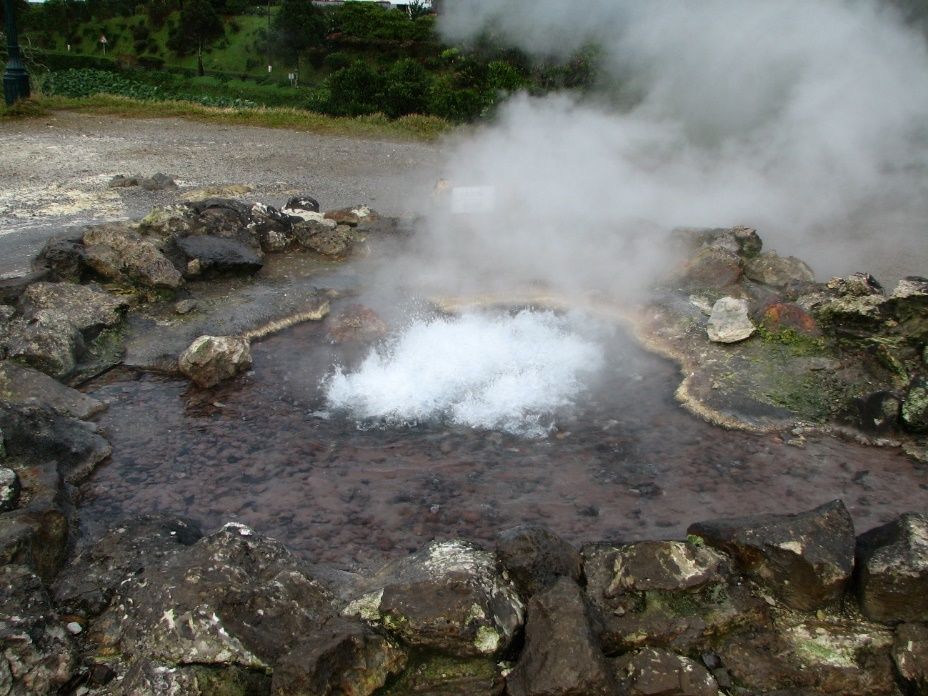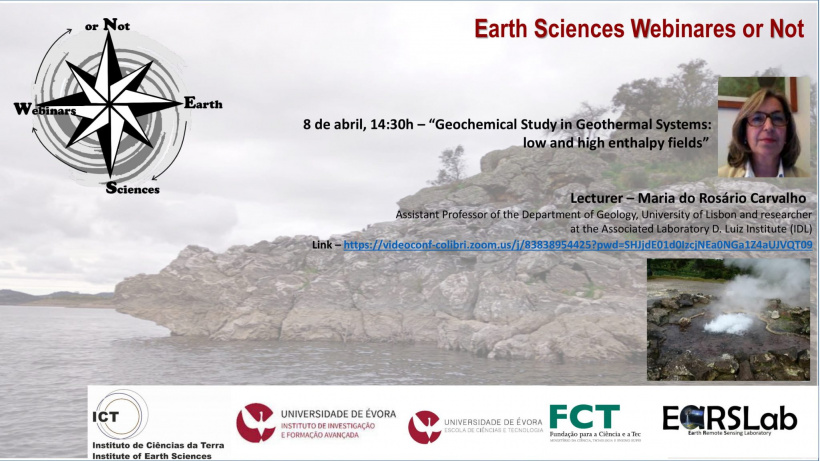Earth Sciences Webinars or Not
Day – April, 8
Hour – 14:30h
Link – https://videoconf-colibri.

Abstract – Geochemical studies of geothermal systems during their exploration and exploitation can be used to obtain information on reservoir parameters like temperature, pressure, state of water-rock interaction, mineral deposition potential, permeability, size of the reservoir, and the evolution of the reservoir during exploitation.
In many areas, geothermal indicators occur in form of fumaroles, hot springs, mud pools, hot altered grounds, and geysers. The chemical and isotopic compositions of the fluids from those thermal manifestations, and drilled wells, are used to trace the fluid origin and the physical chemical processes occurring in the reservoir and during the ascent of fluid to the surface. Emphasis is put on parameters that are sensitive to sub-surface temperatures and allow to estimate the temperature and composition of the fluid in depth.
Non- thermal manifestation areas are surveyed using soil gas surveys include measuring chemical components associated with geothermal activity such as CO2 gas and Radon.
Examples of high and low enthalpy fields, in the Azores islands and mainland will be presented.
Lecturer – Maria do Rosário Carvalho
Current Position – Assistant Professor of the Department of Geology, University of Lisbon and researcher at the Associated Laboratory D. Luiz Institute (IDL).
Maria do Rosário Carvalho, Geologist, PhD in Geology in the Specialty of Hydrogeology, is Assistant Professor of the Department of Geology, Faculty of Sciences, University of Lisbon and researcher at the Associated Laboratory D. Luiz Institute (IDL). Has experience in teaching, researching, and consulting since 1990, in the areas of Hydrogeology, Hydrogeochemistry, Geothermal resources and Environment.

